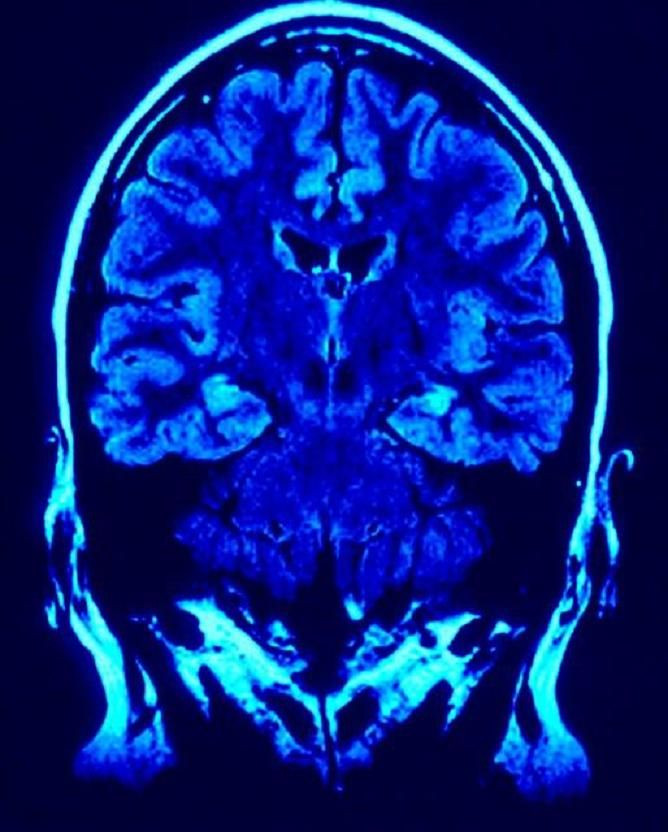Breakthrough Discovery Links Tiny Genetic Variations to Brain Size, IQ, and Disorders

Genes may explain individual differences in brain size and intelligence, according to a new large international study based on data from 21,151 people.
A team of 200 scientists from 100 different institutions worldwide working together to understand the genetic building blocks of the human brain and its functions has for the first time identified genes affect the size of infants’ heads and the volume of the cranium and hippocampus, a seahorse-shaped organ that plays a large role in information consolidation from short-term memory to long-term memory and spatial navigation.
The findings, published online by the journal Nature Genetics, highlighted two key results that certain DNA was linked to brain size and that a specific gene may be tied to the rate at which the hippocampus shrinks in aging.
While brains naturally shrink with age, the size of the brain is important in determining a number of brain disorders, and decreased brain volume and tissue atrophy are a biological markers for hereditary ailments like schizophrenia, bipolar disorder, depression, Alzheimer's disease and dementia.
Previously scientists have suggested that bigger brains are “smarter,” the latest findings offer the strongest evidence up to date that there is a genetic connection to brain size and IQ. Scientists noted that brain size is not completely correlated with a person’s intelligence, and other factors like connections between brain cells and experiences also influence intellect.
"We found fairly unequivocal proof supporting a genetic link to brain function and intelligence. For the first time, we have watertight evidence of how these genes affect the brain," said lead researcher Professor Paul Thompson, a neurologist at the University of California, Los Angeles, School of Medicine in a statement.
The findings indicate that every C-allele variant (DNA has four bases — A, C, T and G) on the HMGA2 gene correlated with both lower intracranial volume, the space inside of the skull which ultimately marks how big the brain can get, and lower IQ scores on the Multidimensional Aptitude Battery, a standardized measure of intellect with an average score of 100 points.
Researchers found that a small variation, involving only a single different molecule in its string of DNA, on a gene called HMGA2 on chromosome 12 can alter IQ by as much as 1.29 points and can also increase the overall volume of the brain by 0.58 percent of the average brain size.
Scientists also found another gene sequence of chromosome 12 called the rs7294919 was linked to variations in volume of the hippocampus, an important part of the brain in charge of memory formation and organization. Researchers said that with every genetic variant called a T-allele in this brain region was linked to lower hippocampus volume equivalent to 3.9 years of aging.
The rs7294919 location on chromosome 12 was also associated with the regulation of cell death, cellular brain development and the cleaning up of proteins, including tau, which decreases functionality in Alzheimer's disease.
By focusing on the genetic code of people with smaller brains, scientists also found a consistent relationship between subtle alterations in the DNA and diminished memory centers. Additionally researchers said that the same genes influence the brain in the same ways in people across diverse populations from Australia, North America and Europe.
Thompson said that the latest scientific findings will help researchers figure out potential ways to mediate these DNA influences on the brain, which can lead to potential drug therapies which target specific genes associated with Alzheimer's, autism and schizophrenia, disorders caused by faulty brain circuitry.
"Millions of people carry variations in their DNA that help boost or lower their brains' susceptibility to a vast range of diseases," Thompson said. "Once we identify the gene, we can target it with a drug to reduce the risk of disease. People also can take preventive steps through exercise, diet and mental stimulation to erase the effects of a bad gene."
"This is a really exciting discovery: that a single letter change leads to a bigger brain. We found fairly unequivocal proof supporting a genetic link to brain function and intelligence. For the first time, we have watertight evidence of how these genes affect the brain. This supplies us with new leads on how to mediate their impact," he concluded.
Published by Medicaldaily.com



























